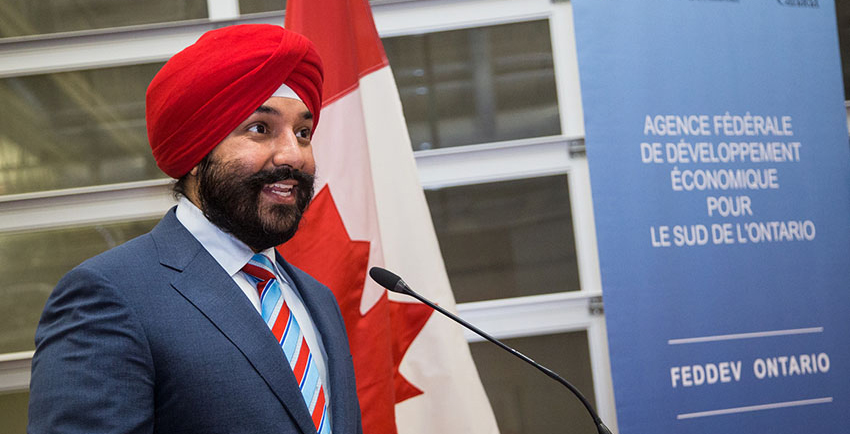
The federal government has unveiled the five winning superclusters that will receive a part of $950 million from the superclusters initiative.
First announced in the government’s federal budget last year, the supercluster initiative called on SMBs and SMEs, not-for-profits, and research institutions to work together to spur innovation in certain sectors. The national shortlisted consortia were announced in October 2017.
By investing in the superclusters, the government hopes to create 50,000 middle-class jobs and grow Canada’s economy by $50 billion over the next 10 years.
“Today we are investing in five superclusters so that tomorrow we will be more than 50,000 jobs richer and benefit from an even stronger economy—an innovation economy,” said Navdeep Bains, Minister of Innovation, Science and Economic Development. “With the superclusters initiative, we bet on Canadians. We looked at what we did well across our great nation, and we asked industry, academia and NGOs how we could do it better. The response was impressive and the ideas were remarkable.”
The superclusters include:
- The Ocean Supercluster (based in Atlantic Canada) will work to improve competitiveness in Canada’s ocean-based industries, including fisheries, oil and gas, and clean energy.
- The SCALE.AI Supercluster (based in Quebec) will build intelligent supply chains through artificial intelligence and robotics; this sector is targeted to the retail, manufacturing, and transport sector.
- The Advanced Manufacturing Supercluster (based in Ontario) will connect Canada’s technology strengths — mostly based in southern Ontario — to the manufacturing industry.
- The Protein Industries Supercluster (based in the Prairies) hopes to make Canada a leading source for plant proteins.
- The Digital Technology Supercluster (based in British Columbia) will use big data and digital technologies to unlock new potential in important sectors like healthcare, forestry, and manufacturing. Specifically, this sector wants to use advanced data collection, analytics, and visualization to build healthcare, natural resources, and industrial applications.
Initially announced shortlisted clusters that didn’t make the cut include Ontario’s cleantech supercluster; the Prairies’ smart agri-food supercluster and smart, sustainable and resilient infrastructure supercluster; and Quebec’s mobility systems supercluster.
The government says that these superclusters represent more than 450 businesses, 60 post-secondary institutions, and 180 other participants in sectors covering 78 percent of Canada’s economy. Consortia are required to leverage funding from the private sector and co-invest dollar for dollar to match the federal contribution approved under the program.
“Our members welcome the government’s focus on advancing domestic entrepreneurs and driving the growth of Canada’s innovation outputs through its superclusters initiative,” said Ben Bergen, executive director of the Council of Canadian Innovators. “By injecting capital into high-growth Canadian firms while ensuring all winning proposals contain intellectual property strategies, the government is helping Canadian innovators scale up globally while ensuring a greater return on their investment.”
The government said that it wants to ensure that superclusters include a strong representation of women and under-represented groups, both working within the cluster and in leadership. When BetaKit spoke with Bains following the shortlist announcement, the Minister said that it would use a not-for-profit model to keep superclusters accountable.
“We will make sure we look at diversity at the governance level, inclusion, measures around where commitments are made, how money is being deployed; is it meeting the mission and objective,” Bains said at the time.
Microsoft is a founding member of the Digital Technology Supercluster, stating that the company “believes that investing in technology and innovations is critical for the future economic growth of Canada.”
This story was originally published by BetaKit.
MobileSyrup may earn a commission from purchases made via our links, which helps fund the journalism we provide free on our website. These links do not influence our editorial content. Support us here.


